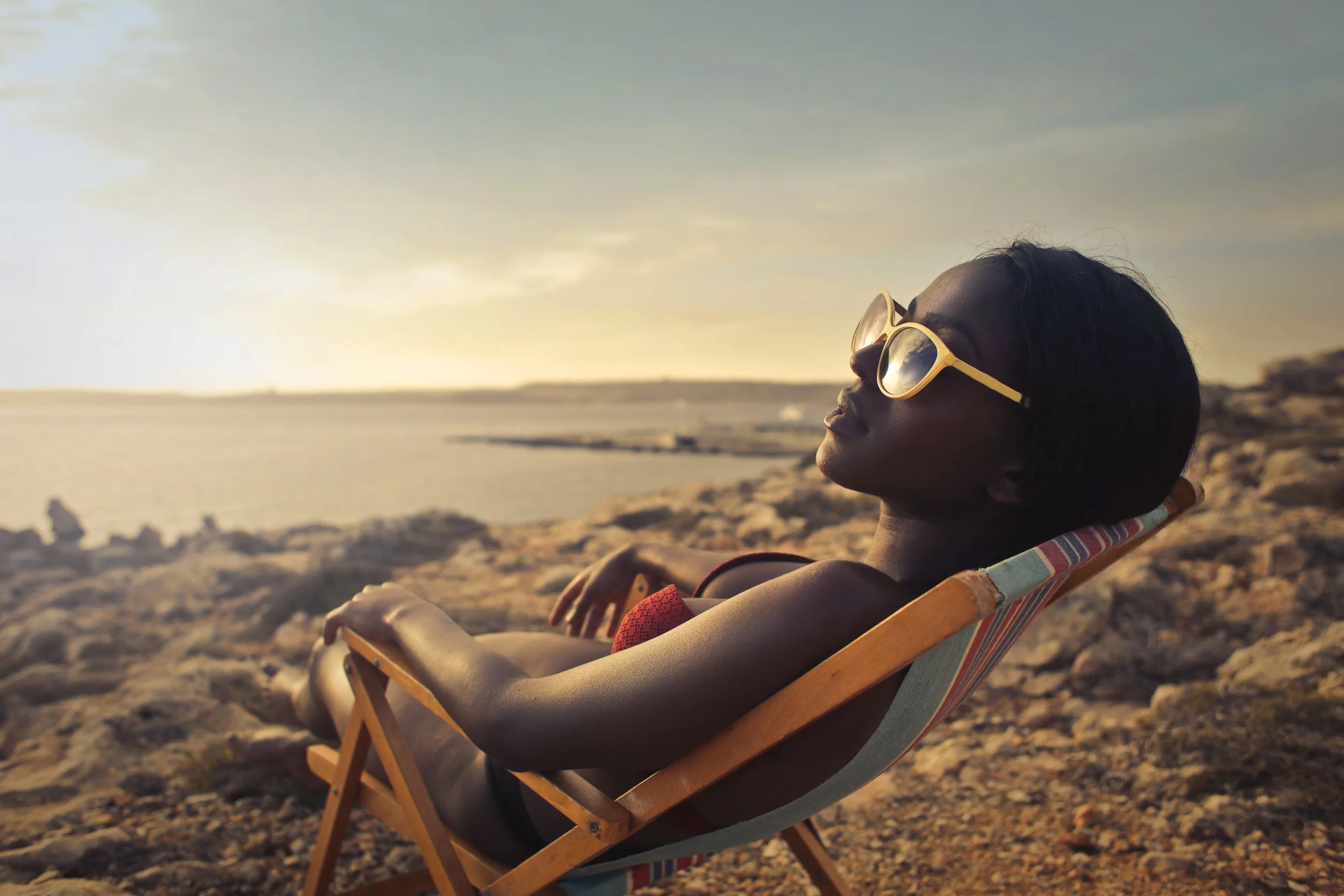Courtesy of Jacqueline Ngo Mpii
Welcome to Paris, France, the city of lights. Known for its attractions like the Eiffel Tower, Musee de Lourve, the Champs-Elysées, and the infamous Moulin Rouge. But beyond the city's bright lights and commercial attractions, on the city's northern border lies the small neighborhood of Goutte D’Or, more affectionately known to the locals as Little Africa.
An enclave of sorts, Little Africa houses a distinct fusion of hip African culture with most of its residents originating from north and west African countries. On any given day you can find the neighborhood abuzz with activity, from local vendors selling fresh produce, African street artists performing for passersby, or bespoke walking tours hosted by none other than Cameroonian born, neighborhood fixture Jacqueline Mpii.
In 2014, Mpii thought long and hard for a way to connect the various small businesses in the neighborhood. The result? Little Africa Paris, the official guidebook. "Everything started with one need. We, the generation of afro-descendants, wherever we are located in the world are in need to be connected to our African roots." Mpii explains of her project beginnings.
Recently, we sat down with her to learn more about Little Africa Paris. Check out her interview below:
Tell us a bit about yourself, and Little Africa Paris, and how it all began.
Courtesy of Jacqueline Ngo Mpii
Everything started with one need. We the generation of afro descendants, wherever we are located in the world are in need to be connected to our African roots. For decades, people thought that it was just black American being in research of their roots, as they do their DNA tests and planned travels to Africa. False! Being born in Africa and growing up in France, with my sisters being born in France, I have observed in my own family the lack of knowledge about the continent and the thirst for learning more. In fact, it is when I was in Mexico that I realized first, black people are everywhere (and we are not aware about that), second, they are in search of being connected to Africa. Back in France, I realized that even in here, the 2nd and 3rd generation of immigrants are in need. Need to better connect to their parents roots that they don’t know. But how to start this reconnection, where?
This is how, going out frequently to exhibitions and talks in Paris, I started to look at this city differently as I realized they were so much about Africa than what it is said. I discover new neighborhoods, so many artifacts in museums and art galleries, shops, brands. This enriched me so much that I said to myself this can’t be the journey of people, it has to be shared to the world. Little Africa was born. A digital platform first, which invites you to have an experience/a taste of Africa, the contemporary one, far away from clichés. The beautiful one. And guess what, it attracts not only black people, but every one who want to learn more and discover it in a good way.
“With Little Africa, I want to shine a positive light on the African presence in the world. ”
What’s it like, as an African woman living in Paris?
Courtesy of Jacqueline Ngo Mpii
It can be rude when you’re a teenager. Quite difficult to identify yourself as a black and proud African French woman. No models seen on tv, magazines so that you can identify with. Growing up, culture enriches you, a lot. So I would say that we are living in an interesting period as African women living in France as we have more and more models such as Kareen Guiock, the journalist on national tv (M6), Aissa Maiga the actress and writer, or the blogger Black Beauty Black who takes debate of black women representation in beauty to the highest institutions. We now find some face powder with our colors in some regular shops, more hair salons that can treat our hair and above all, we can walk on the streets or go to work with our afro hair without being embarrassed. It wasn't the case, but now we can. So I feel good.
Did your Cameroonian roots make it easier or more difficult to adapt to the culture of Paris?
Courtesy of Jacqueline Ngo Mpii
As language is mostly what block people from adapting to a new country, I will say with that my Cameroonian roots haven’t been difficult to adapt to the culture of Paris. You know Cameroon has been a French colony. There people speak French as it is one of the national languages with english. Plus, the education at school, you won’t believe it, but it's built as the french one. Same name of categories, in fact you learn more about French history than your home country. As far as I remember, but last time I have checked, people still study on books and programs that are based on the French one.
What’s a common misconception about the African people of Europe?
First, people doesn’t know we do exist. Specially you guys, from America. And when people discover it, they think those black people they see arrived by boats escaping their homes as tv show it. Never is it told or remembered that, some of the European countries where black people are located is due to colonial history of European nations. It is never told that so many human zoos were organized here that, people who were told to go to work in Europe ended up in zoos for racist shows. Do those people went back home after?
Jacqueline Ngo Mpii, a French entrepreneur of Cameroonian descent, is the brains behind the "Little Africa" website. It offers tips on where to go in France, tours to traditional African textile shops, and the best restaurants in Paris serving different African cuisine.
It is never said, that every colonial country, during the second world war used colonial forces to help them in that war. The “Senegalese Tiralleurs”, those Africans and French carribbean countries, fought for France. After the war did they went back home? Those guys were even French in their home country.
After colonization, is it said that colonial countries settled immigration programs because they were in need of workers to help rebuild their countries? You see, what it is shown now on tv about Africans coming to Europe by boats, is the result of many facts not just people looking for opportunities.
Why do you think Paris is often overlooked as a source for black fashion & creativity?
Courtesy of Jaqueline Ngo Mpii
Seriously I don’t know. But something I am sure of, is that it won’t continue as the new generation of creatives in France are taking over the internet to show to the rest of the world that they do exist. And this is our main mission at Little Africa with our city guide book and tours. With Little Africa, I want to shine a positive light on the African presence in the world. Wherever we find it in the world, the African presence contributes to the cultural and artistic enrichment of the countries in which it is located.
Where can we find you online?
You can find us at: www.littleafrica.fr. This our main website, where we share news, spots, and discuss about black identity and heritage across the world
You can also purchase our City Guide book of Africa in Paris, available for purchase in the Black & Abroad online store.
My tours are also available for booking on Airbnb: https://www.airbnb.com/experiences/47719.
Let Jacqueline take you around Little Africa!
We've partnered with Jacqueline & Little Africa Paris to offer the English version of her one of a kind city guide to Black Paris! Order your guide today!

















